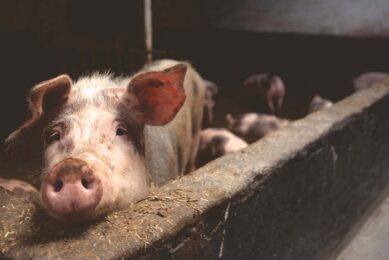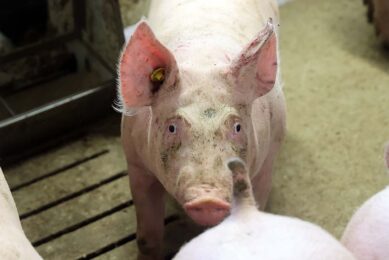Ag Secretary Vilsack highlights benefits of the U.S.-Korea Trade Agreement
Agriculture Secretary Tom Vilsack hosted a media conference call to highlight the benefits to U.S. agriculture of the U.S.-Korea Trade Agreement (KORUS) now pending before Congress.
The Obama Administration concluded trade negotiations with South Korea in December 2010, setting the stage for Congressional action. It is expected that, once ratified by Congress, the U.S.-Korea Trade Agreement will expand U.S. farm exports to South Korea by $1.8 billion, support thousands of new jobs here at home, and help to position U.S. agriculture ahead of its competitors in the lucrative Asian marketplace.
“The U.S.-Korea Trade Agreement represents an historic opportunity to increase exports, support job creation, and bolster the American economy, as well as strengthen a vital strategic alliance in the Asia-Pacific,” said Vilsack. “Economic output is estimated to grow more under this agreement than from our last nine trade agreements combined. This agreement immediately eliminates duties on the majority of U.S. farm products exported to Korea and eliminates duties over time on many others, including U.S. beef. KORUS is a win not just for America’s farmers and ranchers, but for millions of Americans who depend on the farm economy for jobs and wages. Congress must move swiftly to ratify the U.S.-Korea Trade Agreement, because if we do not act quickly and decisively, America’s competitors will secure their own trade deals with Korea, and our competitors’ products will achieve an advantage at the expense of American productivity.”
The United States provided almost 30 percent of Korea’s total agricultural imports in 2010. In fiscal year 2010 (Oct. 1, 2009 – Sept. 30, 2010), U.S. agricultural exports to Korea totaled nearly $5 billion, making Korea the fifth largest export market for U.S. farm products.
In 2010, President Obama laid out a challenge to all sectors of the economy with his National Export Initiative (NEI), a program intended to coordinate federal efforts to double U.S. exports and create two million new jobs by 2014. The U.S.-Korea agreement is expected to boost agricultural exports by as much as $1.8 billion every year, as it immediately eliminates duties on the majority of U.S. farm products exported to Korea, including wheat, corn, soybeans for crushing, whey for feed use, hides and skins, cotton, cherries, pistachios, almonds, orange juice, grape juice, and wine, and reduces or eliminates duties on many others over time.
With ratification of the U.S.-Korea Trade Agreement, more than 90 percent of pork exports will be duty-free by 2016. Moreover, Korea’s 40-percent tariff on U.S. beef will be eliminated over 15 years. U.S. beef exports to Korea nearly doubled last year compared to a year earlier. Korea imported 125,000 tons of U.S. beef in 2010, a 97-percent increase from the year before. However, Korea is currently negotiating a trade agreement with Australia, a major U.S. competitor for the Korean beef market, which may allow tariff cuts for Australian beef to take effect before those on U.S. beef if ratification of the U.S.-Korea agreement is delayed.
In just over a decade, the U.S. share of Korea’s import market for goods has fallen from 21 percent to 9 percent. Meanwhile, Asian countries are securing their own preferential trade agreements that exclude the United States. Across the region, 180 bilateral agreements excluding the United States are in force, 20 are awaiting implementation, and 70 are under negotiation.
Source: USDA
Join 18,000+ subscribers
Subscribe to our newsletter to stay updated about all the need-to-know content in the pigsector, three times a week. Beheer
Beheer










 WP Admin
WP Admin  Bewerk bericht
Bewerk bericht